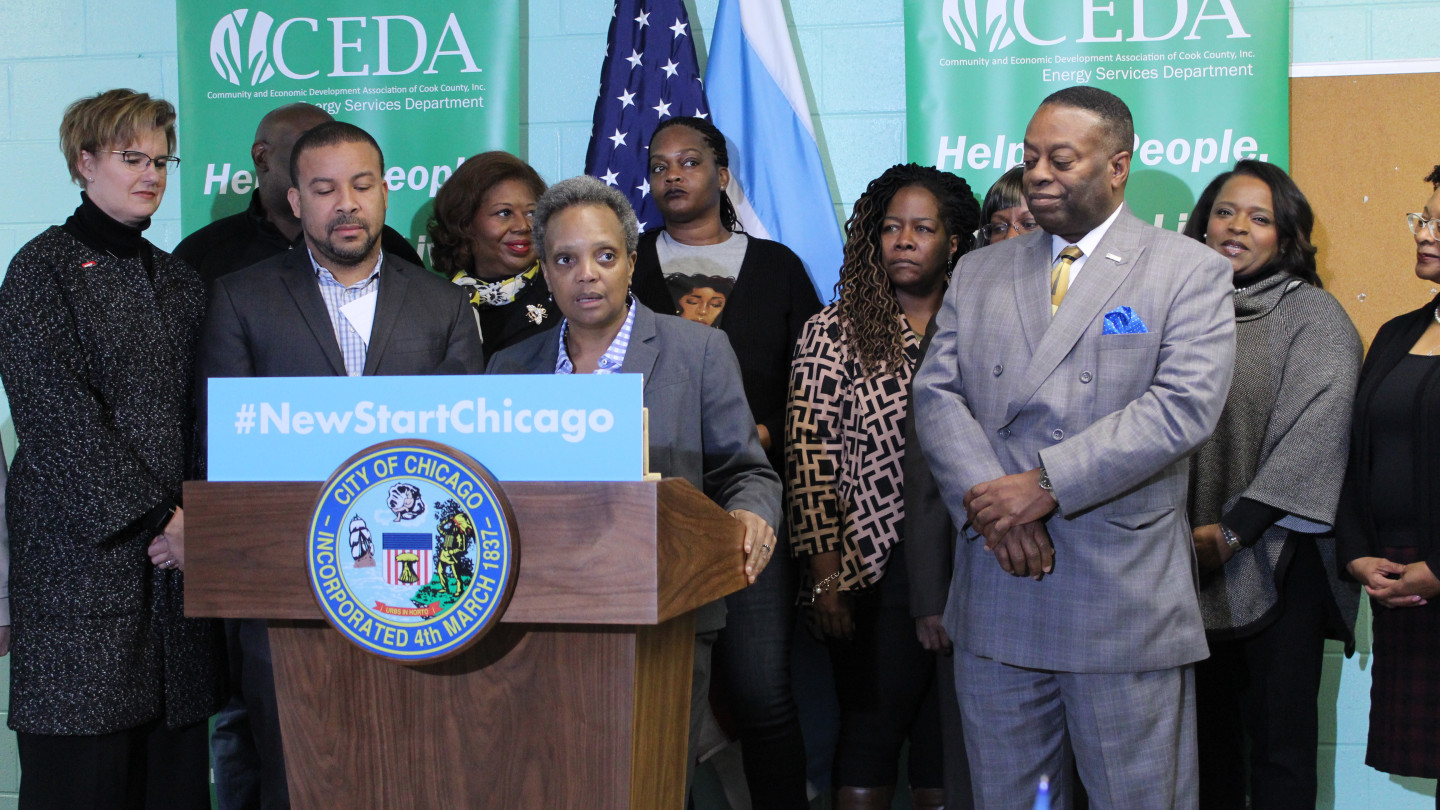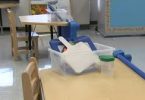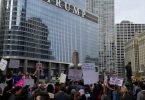Chicago Will Stop Shutting Off Water Service Due To Unpaid Bills: ‘Water Is A Basic Human Right’ by Pascal Sabino, Blockclub Chicago.
NORTH LAWNDALE — The city will no longer shut off a resident’s water supply because of unpaid utility bills, Mayor Lori Lightfoot announced Friday.
At the announcement at Saint Agatha’s Church in North Lawndale, Lightfoot said access to water is a basic human right that too many Chicagoans have had to go without because they have had to choose between paying the utility bills and paying for other needs. The city’s new Utility Billing Relief and Debt Forgiveness program aims to alleviate the burden of overdue water bills on residents.
The new policy will also provide pathways for residents to settle their utility debts by paying a discounted rate of 50 percent for water service, sewer and water-sewer tax bills. After one year of meeting the discounted payments, the city would forgive previously incurred debt.
An estimated 20,000 people will be affected by the relief program, the mayor said, and the changes would lower the average homeowner’s metered bill from $53 to $33 a month.
Lightfoot said this program is a continuation of her larger fines and fees overhaul to stop penalizing people because they can’t afford to keep up with their city bills. The city’s historically regressive fines and fees system “entraps our residents, our neighbors in generational poverty,” Lightfoot said.
“Our families deserve to live their lives without the constant financial stress imposed by city government. They need a pathway to compliance to be able to pay their bills,” the mayor said.
In July, Lightfoot said similar reforms would be made to the city’s parking ticket program when she announced the city would stop suspending driver’s licenses for unpaid tickets and make it easier for drivers to access payment plans to settle ticket debt.
An ordinance to authorize the new program will be introduced to City Council next month. The program will be implemented in partnership with the Community and Economic Development Association of Cook County, which will work with partner groups across the city to conduct enroll homeowners in the new program beginning in March 2020.
Homeowners whose households fall below 150 percent of the federal poverty level qualify for the program. That amounts to an annual income of $18,735 for a single person household, $25,365 for a two-person household, $31,995 for a three-person household and $38,625 for a family of four.
Ald. Michael Scott Jr. (24th) said the new utility billing program will go help level the playing field for families overburdened by utility bills.
“Water is a basic human right… This allows folks who do not have the wherewithal or the means or who have tried and bills have just kind of stacked up… to not have to worry about that choice,” Scott said.
North Lawndale Employment Network CEO Brenda Palms Barber said the new program will have a tremendous impact on North Lawndale and on families across the city that are similarly impacted by unemployment, mass incarceration and disinvestment.
“We continue to be a community that has four times the unemployment rate of other neighborhoods,” Barber said. “It’s expensive to be poor. And when you can’t pay a phone bill or can’t pay a utility bill or, or a water bill, it doesn’t make you ready to work. It doesn’t allow you to support yourself or your family.”
Lawndale resident Sadie Joseph, who has been helped by existing utility assistance programs after she was incarcerated, said the new program will be a critical pathway for people to get the assistance they need.
“The struggle is real, and everybody can’t afford it right after being incarcerated,” Joseph said. “Or just can’t afford it and [are] too ashamed to come forward.”
Pascal Sabino is a Report for America corps member covering Austin, North Lawndale and Garfield Park for Block Club Chicago.
Do stories like this matter to you? Subscribe to Block Club Chicago. Every dime we make funds reporting from Chicago’s neighborhoods







